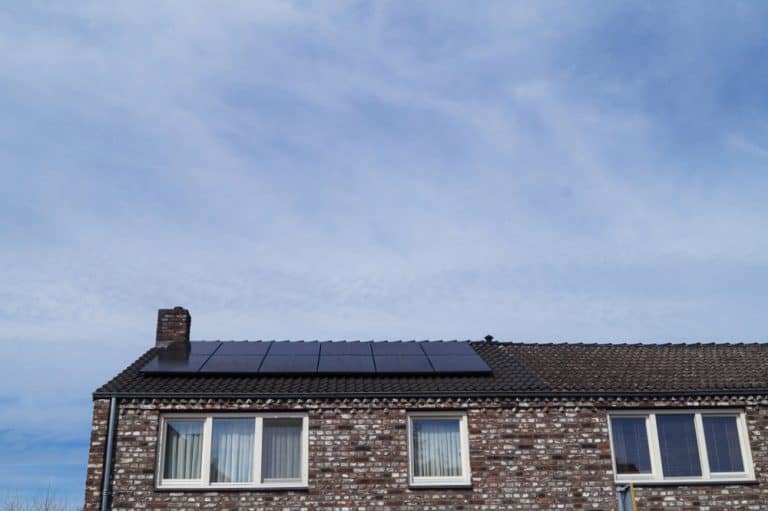Understanding NV Solar Power Laws

What you can do with your Nevada solar panels depends on the laws and regulations of your state, utility company, and federal law. Furthermore, these regulations can either make or break the affordability of solar panels.
Off-grid Solar Laws in Nevada
Often when people think of residential solar, they assume it means they can free themselves completely of the grid. Although grid-tied solar drastically reduces the cost of the average home’s electricity bill, the off-grid option is attractive to homeowners who want total removal from their local utility company so they can achieve full energy independence.
Nevada’s Off-grid Solar Complications
Turning a home into a self-sustaining power plant, while great in theory, has its limitations. First, it’s cheaper to continue using the grid than it is to disconnect from it in most cases.
Secondly, even if you have solar batteries, it’s easier to stay connected to the grid. Most people, even those with backup, stay connected to the grid because they have found that the off-grid lifestyle isn’t worth the price.
Legal Off-grid Solar in Nevada
To legally live off-grid, in the Silver State, individuals need to jump through several hoops. These hoops include various zoning restrictions and city/county ordinances specific to solar. To make an off-grid solar array legal, individuals need to secure permits. While residential solar already requires permits, off-grid solar requires even more permitting processes, which are expensive and difficult-to-obtain.
However, if the home already sits in a location without electricity, it’s easier to get permits for off-grid solar. It may even cost less or at least compare to the cost of extending the grid to the home.
Nevada’s Current Electrical Code Vs. the Current National Electric Code
Since solar generates and transports electricity, it has to follow the National Electric Code (NEC). However, not every state uses the same electric code.
Although the national code has an NEC 2020 update in progress, it may not apply to your state. To install solar for your Nevada home, you need to know which NEC update the state uses.
The Current National Electric Code
Every three years, the national electric code is updated to account for advances in technology and resolve unintended consequences of existing or previous electrical code law. Each of these codes is as extensive as they are comprehensive. As of July 2020, Four states updated to the NEC 2020, and 18 have started the NEC 2020 update process. While stress-tested by professionals in the field, these codes are suggestions. Only when a state implements the code will it become an enforced regulation.
Solar Panel Rapid Shutdown Update in Nevada
The last major change relating to solar power code occurred during the automatic shut-off switch in the 2017 NEC. Before this update, the code only required a switch to turn off the power at the inverter.
Emergency Rapid Shutdown Policy
Pre NEC 2017 solar requirement updates prevent solar power from harming linemen working on the grid during an outage by requiring solar arrays to turn off at the inverter during an outage. However, solar panels still produce power when the inverter is disconnected. While a great workaround for those using SMA Secure Power Supply (SPS), it could become an issue if a first responder had to enter the home through the roof.
Rapid Shutdown and Firefighters
The NEC 2017 now accounts for emergency roof access on solar homes. It mandates power shut off at the solar panel when using the automatic shut-off switch. Now all conductors within a foot of the array area need reduction to 80 or fewer volts within 30 seconds.
Nevada Sticking with NEC 2011
Nevada hasn’t upgraded their code since the NEC 2011. And, according to the National Fire Protection Association, they aren’t planning on updating it either. Since Nevada still uses the NEC 2011, the state only requires installers to follow these codes. However, to avoid confusion, most Nevada solar installers stay up-to-date with the current NEC.
Favorable Nevada Solar Programs
While NV Energy’s solar incentive program closed on June 5, 2019, Nevadans still have plenty of reasons to install solar on their homes. The state and federal government incentivize solar, and NV Energy has a favorable net metering tier system and energy storage incentive program.
Nevada’s Solar Access Laws
Nevada’s solar access laws prohibit solar restrictions, making it possible for more individuals to add solar and contribute to the state’s renewable portfolio standard (RPS). These laws prevent real estate, zoning, and communities from hindering solar installation without reasonable cause.
Federal Solar Investment Tax Credit (the ITC)
In 2020 the federal solar tax credit covers 26 percent of qualified solar installations. This incentive has a long history of helping individuals afford solar, and will continue to do so, even with annualized prorations of the incentive.
NV Energy’s Tiered Net Metering
NV Energy has a four-tier net metering system that locks individuals in at their agreed rate for 20 years. The current tier pays customers 75 percent of the retail price for excess solar generation exported back onto the grid.
NV Energy’s Energy Storage Incentive Program
Those who want to add storage to their solar array, like a whole-house battery, can also benefit from NV Energy’s 3-step storage incentive program. As of July 1, 2020, the program has transitioned into step two, which pays time-of-use (TOU) customers up to $3,000 and non-TOU customers up to $1,500.



Send a Message
Oops! We could not locate your form.